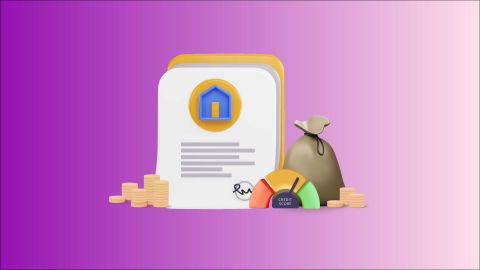If you are planning to buy a home, then it is essential to understand the minimum salary required for a home loan. Your monthly income is one of the significant factors that lenders consider before lending you a home loan.
There is not a fixed minimum salary required for home loan as it varies depending on various factors such as the borrower's credit score, employment history, and debt-to-income ratio (DTI).
Minimum salary required for home loan
The amount of loan you can take out depends on your income and other financial resources. A higher income will give you a greater borrowing capacity. However, the exact minimum salary required for home loan varies from lender to lender.
Eligibility criteria based on minimum salary for home loan
To be eligible for a home loan, you must have a credit score of 725 or higher, and stable employment. Some lenders may have lower or higher minimum salary requirements compared to others. Additionally, the borrower must show proof of income, i.e., payslips, bank statements, etc.
Comparison of minimum salary requirements among lenders
It is crucial to compare the minimum income requirements among lenders as it can significantly impact your home loan process. Every lender has different loan requirements and interest rates. By comparing different lenders, you can get a better idea of which lender is more suited to your financial situation, thus maximising your chances of getting approved for a home loan.
Tips to increase eligibility with minimum salary for home loan
If you have a minimum salary and want to increase your eligibility for a home loan, you can follow some tips below:
- Improve your credit score: A good credit score increases your chances of getting approved for a home loan. Make sure to pay your bills on time and maintain a good credit history.
- Keep the debt-to-income ratio low: A low DTI indicates that you can comfortably pay your loan installments without defaulting. A lower DTI means you have more disposable income, increasing your chances of getting approved for a home loan.
- Choose a lower loan amount: By selecting a lower loan amount, you can reduce your monthly repayments and increase your chances of getting approved for a home loan.
- Apply with a co-borrower/ guarantor: If you are not meeting the lender's requirements, you can apply for the home loan with a co-borrower or guarantor who has a higher income.
Helpful resources and tips for home loan borrowers |
||
Factors influencing minimum salary for home loan
- Lender policies determine the minimum income requirement for home loans.
- Credit score: A higher credit score can lead to a lower minimum salary requirement.
- Debt-to-income ratio: Lenders prefer borrowers who have a lower DTI.
- Employment history: A stable employment record can help meet the minimum salary requirement.
- Loan amount: The loan amount determines the borrower's minimum salary requirement to make the monthly repayments.
In conclusion, by following the tips mentioned above, you can increase your eligibility for a home loan if you have a lower salary. It is essential to compare the minimum income requirements among lenders and analyse how other factors like credit score, DTI, and employment history affect your eligibility. By doing research and choosing the right lender, you can maximise your chances of getting approved for a home loan.
Home loans in different cities
Home loans designed for different professionals
|
|




